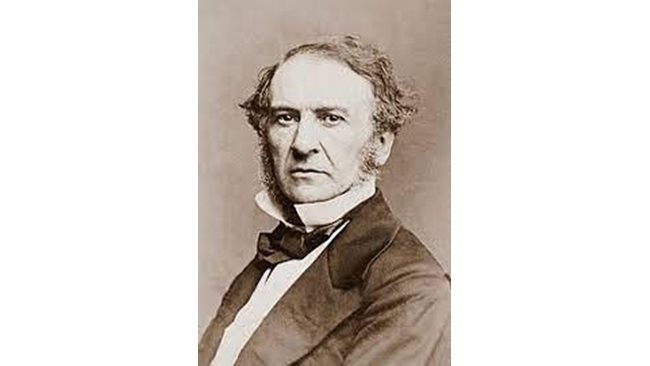–
–
–
London plans to erase the great William Gladstone from its history. A poll is currently being conducted on how to rename the park in the western part of the city, which covers 86 acres of land. Thus, the politician, who ruled for 4 terms as prime minister, will be erased from the map of the capital, reports “Daily Mail”.
The proposal is from the Labor-dominated city council, and ironically, Gladstone is one of the largest in the party’s history.
The reason is that Gladstone’s father was a slave owner. He even received compensation of £ 9,000 in the 19th century, when slavery was banned. William Gladstone himself has always said that slavery is a crime, but it is clearly not enough.
In 1876–1877, it was William Gladstone who was the largest figure in England and Europe, who drew attention to Bulgaria. As a result of public outrage at the atrocities in the suppression of the April Uprising in England, a movement was formed to protect the Bulgarians, the so-called “Bulgarian agitation”. Gladstone, who was in opposition during this period, became his political leader and defended the Bulgarian cause before parliament and public opinion – in parliamentary debates, numerous speeches and pamphlets such as “Bulgarian Horrors and the Eastern Question” (1876), in which he condemned the atrocities of the Ottoman Empire against the Bulgarians. In it, Gladstone attacked the government of Disraeli, which is in power because of its indifference to violence and oppression of Bulgarians in Turkey. There he eloquently writes:
Let the Turks now bear the insults they have committed in the only possible way, namely, by bearing themselves. Their zapties, their bimbashis and yuzbashis, their creamers and their pashas, all but one, I hope, will be swept away from the area they have ravaged and defiled. This complete deliverance, this most blissful deliverance, is the only retribution we can do for the heaps of the dead, for the damaged honor of both the bride and the maiden and the child; for a civilization that is ridiculed and ashamed; for the laws of God, or, if you will, the laws of Allah; for the moral sense of humanity in general. There is not a single criminal in a European prison, not a single criminal in the islands of the South Seas, whose indignation would not flare up and explode at the mention of what was done, which was considered too late, but which remains unrevenged, which he left behind. all the abominations and all the cruel passions which have begotten him, and which may erupt again into another soul-destroying harvest from the soil soaked and stinking with blood, and into the air polluted by every imaginary criminal and shameful act. To do such things once is a sinister disgrace to that part of our (human) race that has done it; to leave the door open for even the slightest possible repetition would spread this shame to the world.
In the spring of 1877 he tried to prevent a military solution to the Eastern Crisis until the last moment, proposing to give autonomy to the Bulgarians and submitting 10 resolutions in this sense to the House of Commons. In 1878, Gladstone angrily condemned the Treaty of Berlin and the position of the then British government of Disraeli.
Between 1881 and 1883, he defended the Tarnovo Constitution and opposed its repeal because he considered Bulgarians to be politically mature and capable of democratic governance. In 1885, Gladstone fully supported the Act of Union and warned the governments of neighboring countries not to oppose the “free will” of the Bulgarian people. In 1897, in a letter to the secretary of the Byron Society, Francis C. Stevenson Gladstone, he used the phrase “Macedonia for the Macedonians”, which became widely known. In a preface to the Macedonian Question pamphlet, which included the letter, Stevenson wrote that Gladstone used “Macedonians” as a collective name for the region’s diverse population. Gladstone’s idea is that this population, under all kinds of pressure, including from “armed propaganda”, should be left free to self-determine and gain autonomy. This is actually the request of the ethnic Bulgarians in the district and of the Internal Macedonian-Edirne Revolutionary Organization (IMRO).
–


